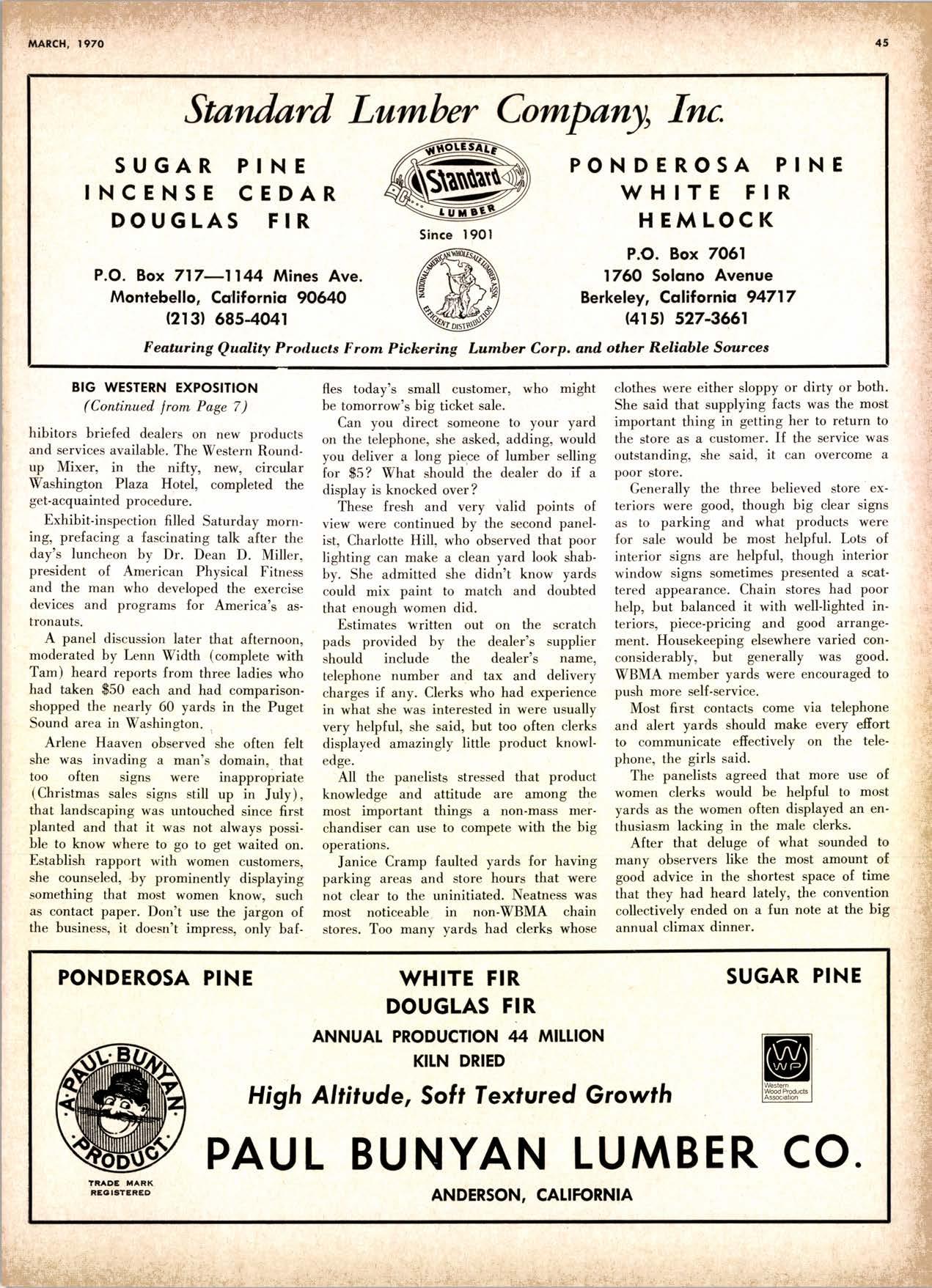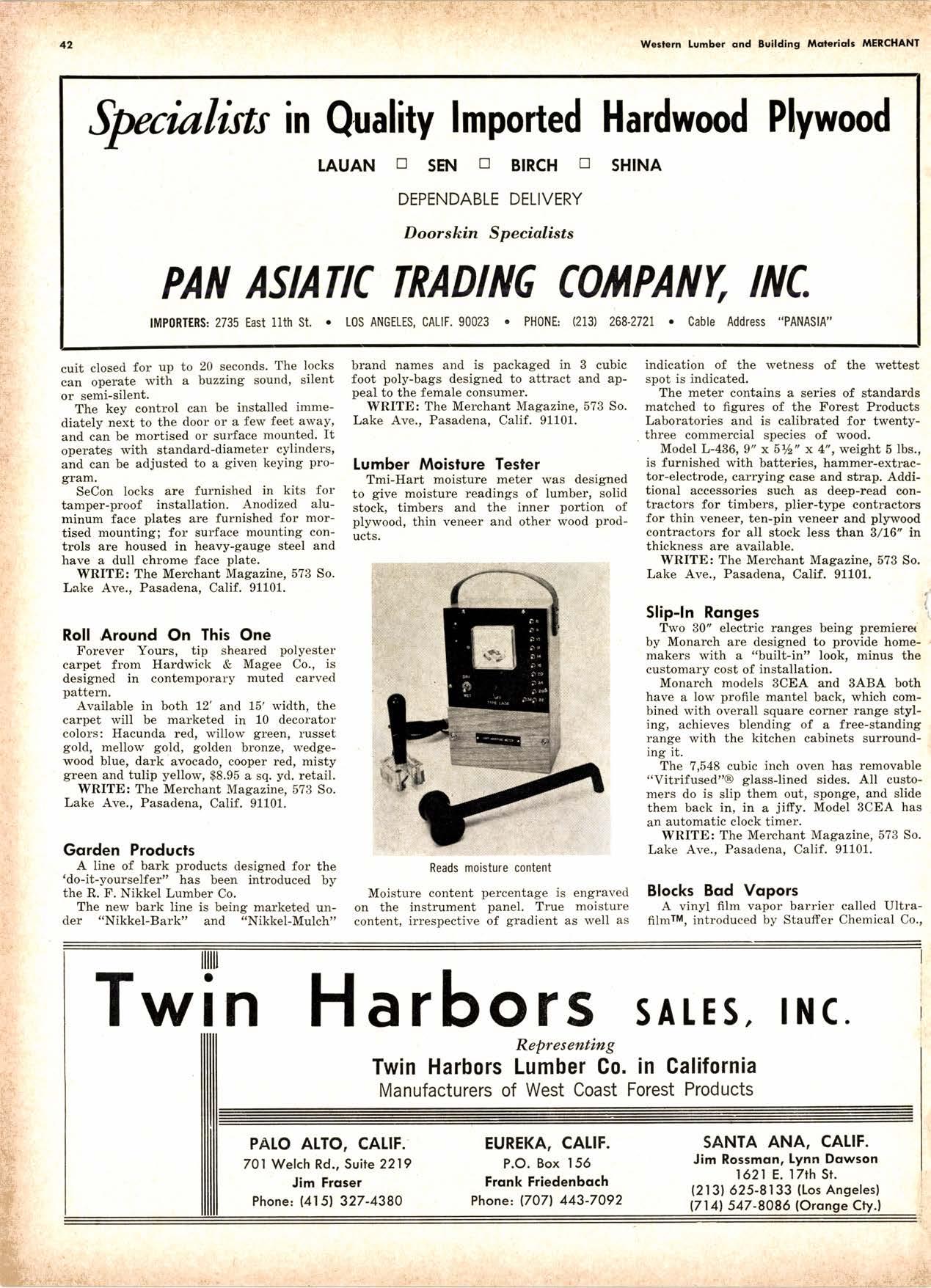
4 minute read
SNN@@TH SELLING
by Georse N. Kohn, Morketins con:u^::2",r" N. Kahn
RESEARCH BEFORE YOU SEtt
Fred Mayerson, who handled an exclusive women's apparel line, could not convince a certain department store to buy his resort clothing line.
"This is a small town," the buyer argued. 'oour customers don't go to places where they need fashionable play attire."
So Fred got his usual order on staple items, thanked the buyer and said goodbye. But he didn't leave town right away.
For the next two days he prowled around the local newspaper office and visited the only two travel agencies in the community.
Fred then returned to the department store buyer.
"I have some news for you," he told that individual. "Last year more than 300 women in this town took their vacations in such places as Florida, the Bahamas, Jamaica and Puerto Rico." '
What Fred had done was quite simple. He searched the social columns of the newspaper for vacation tidbits. From the travel agencies he acquired still more in, formation about thc leisure .habits of local citizens.
He had found that a good potential market for resort wear was being missed by the department store. The women were probably buying this type of clothing elsewhere, perhaps at the resorts where they paid more.
This was startling to tle buyer and he said so. He also gave Fred a modest but encouraging order for vacation apparel. The order increased substantially in the following years as the store enjoyed phenomenal success with the line.
Research Pays Off
The point of this story is to show you that research pays ofi. Often an alert salesman can uncover a market for a prospect by dilig-'ntly exploring the possibilities for co-)'-1.-r('r use of the product.
Many buyers are lery conservative until they see the light. It's up to you to turn it on for them. A prospect may not realize there are people clamoring to buy your merchandise if given the opportunity.
REPRINTS FOR SALESMEN this is a condenscd vetrilon. Each lesson is available in il expanded form, in a .l-pagc brochure, sirc Srtxll, printed in 2 color on wblte llodsy paper and is 3-hole puncbed to fit any standard 3. rlng binder. Each subject in this expmded version is fully rld completely developed in comprehensivc detail and inFltirl1.," self-examination quiz for Salesmen. Prices are as
I to 9 copies (of each article)....-..-...*.-.50 cents each lO to 49 copies (of each article)-..-...-.......37r1 cents each
50 to 99 copies (of cach article)........-.-..*30 ceDts each lm or mor€ copies (of each anicle)...-........25 ccnts each ' .Thc c[tiro scdcs may be prqordered or individual articlcs ' DrlJ bc ordered by number . . , address orders to the Ocorgo N. Kahn Co., Marketing Consult nts, Sale3 Traln-
Brand Research
The salesman has a responsibility to know as much as possible about both his own and the competition's product. This requires research also. In some cases, the company will have this data for its salesmen.
But in many instances you will have to collect this information yourself.
If, {or example, you are a linen salesman, you should know the strong and weak points of both your and your competitor's product. Prospects also are interested in such points as stitching, durability, absorbency and origin of the raw material. You should also know how the product is made.
Or supposing you sell tea and cofiee. You should be aware of how your product is processed and manufactured, how it differs from competitors' products and how it rates with consumers throughout the country.
An insurance salesman must know the benefits of his plan from A to Z, plus its advantages over other plans.
All this involves research. The more research you do the better chance you have of making sales and getting repeat orders. Sometimes the digging for these facts is tedious and the urge to chuck the task for the golf course is tempting. But if you ignore this temptation and concentrate on your work, you will have a great deal more time for golfing and other recreation in future years.
SALESMAN VS. COMPANY RESEARCH
It's a well-known fact that many business and industrial firms carry on their own research. These are expensive projects which attempt to determine attitude, image dimensions and buying habits. In many instances tlle data is available to the salesman in one form or another.
If such material is furnished to you, by all means use it. There may be valuable information which can inirease your volume.
However, there is no need to feel left out o{ the research picture if your outfit doesn't have such data. Actually, you may be in a better position to make a consumer study than your company. As a salesman, you are on the firing line. You are in an fact, people will probably be more responsive to a salesman asking questions than to a professional pollster.
Bob Murray, a housewares salesman, spends a few hours in supermarkets month, talking to women about their pref' erences and complaints in connection w these items.
"You'd be surprised how readily they'll talk." Bob said. "And the women seemed even more easer to tell me their likes and dislikes when they learned that I sold the products. They felt they had a direct to the manufas1u1s1-and they did."
Finding Time
In the first place, let me emphasize that I don't expect a salesman to undertake large scale research projects ordinarily handled by a team of experts and workers.
But the salesman does have time for limited research that can help him make sales. In fact, he should consider this kind of research as a part of his selling.
Much of this digging can be done bY phone. A diligent salesman can obtain a large amount of information from newspa' per and other standard sources. Some times it's wise to take out a day to check out facts that can mean a big order. One salesman once devoted three days to find' ing out how many boys and girls in a cer' tain community planned to start college in the fall. Then, armed with the figureg he was able to sell an appliance store a large number of table radios and portable hi-fi record players. How come? College stu' dents are among the best customers for this equipment.
Are you taking advantage of research op' portunities? A "yes" answer to at least seven questions indicates you are.
1. Do you believe in the importance of research? DYes Nof]
2. Have you researched your own product? nYes Non
3. Have you researched the competitor's ploduct? nYes Non
4. Do you conduct research that will be of interest and benefit to prospects and customers? nYes NoD
5. Do you take advantage of research conducted by Youi companv? Yes n No n
6. 'Do you ehlist the aid of your company office in doing research? Yes ! No n
7. Do ybu contact your customers for attitudes and buying habits? Yes ! No !
8. Do vou allot time for research? Yes'n No tr
9. Do you explore consumer use of the product? Yesn Non
10. Have you gained by research? Yes[] Non










